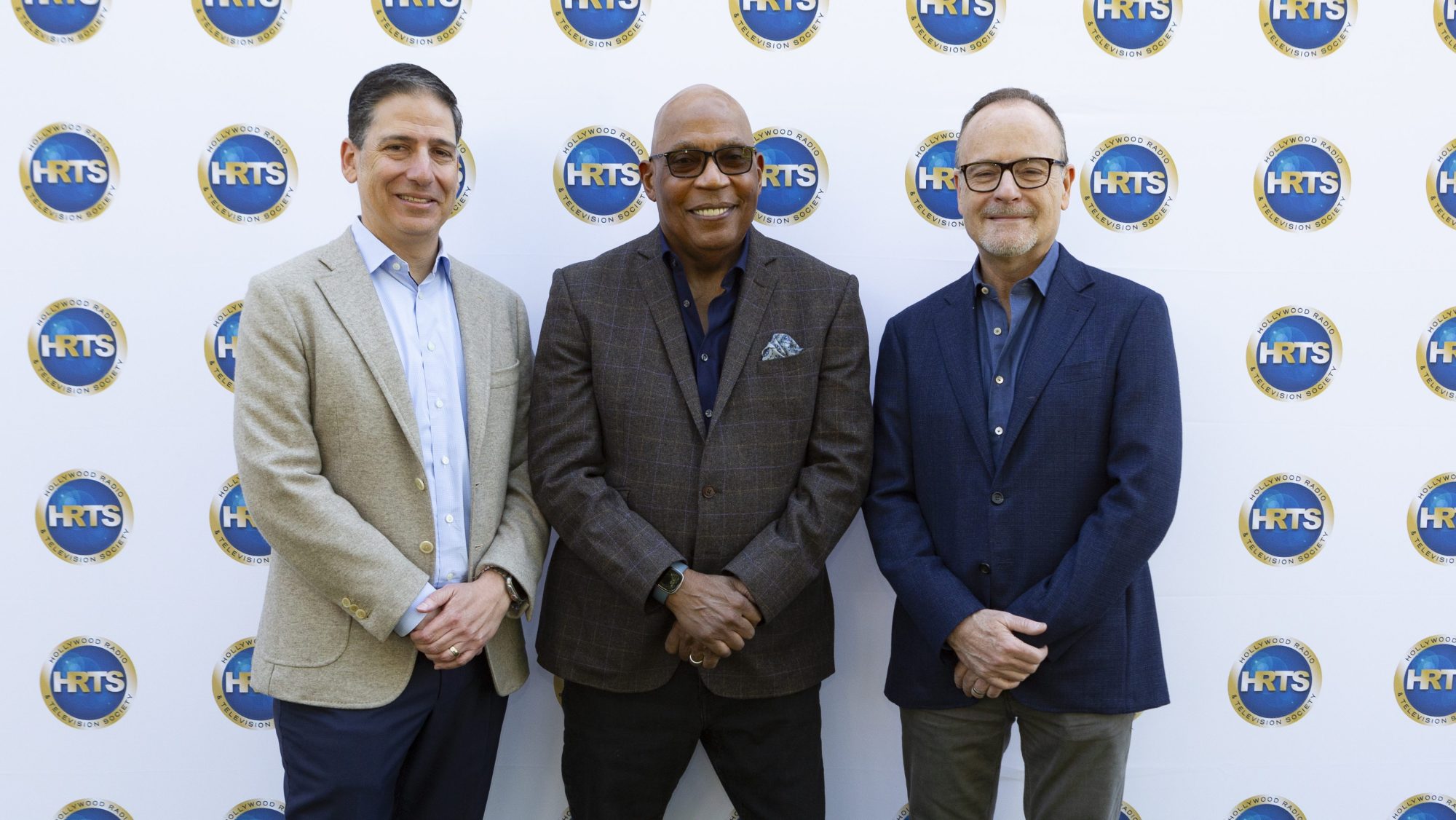
With a collective ennui permeating the entertainment industry, it’d be understandable if many in attendance at a Thursday discussion with FX’s John Landgraf and Disney’s Eric Schrier might have been seeking at least one reason to feel optimistic. And they got it. Sort of.
Late in the Disney lot panel put on by Hollywood Radio & Television Society, the moderator, director Paris Barclay, finally turned from the topic at hand (“cultivating creative excellence”) to the one on everybody’s mind: industry shrinkage. “You’ve got to tell us [Hollywood] is going to be OK,” Barclay jokingly implored the FX chairman.
Related Stories
“It’ll still be here,” Landgraf replied.
“And there’ll be a place for all of us?” Barclay countered.
“I don’t know about all of us,” he replied. “I can’t speak for everyone. Personally, my singular strategy is just keep getting better. Early in my career, I was the bug — not the windshield. I went home feeling terrible about what had happened that day. ‘I wish I’d done this instead of that. But every day I said, ‘OK, well, what can you get better at?’ My theory was, ‘Well, I might not be good at this yet, but if I get better every day, eventually I’m going to be really good at this.’”
It wasn’t the pep talk people might have wanted, but it was a pep talk all the same. Even one of the town’s most cerebral tastemakers once had imposter syndrome. “I was a little bit of a late bloomer,” he continued. “It just took a long time to learn all these things, even when I got to FX when I was 41. I started to feel like pretty confident by the time I was about 50.”
Of course, the real way Landgraf and Schrier, president of Disney Television Studios and Global Original Television Strategy, were not on hand for a therapy session. They were there to talk about some of their big swings. And few have been bigger than 2024 juggernaut Shōgun. The very pricey show, which spent a decade in development, was one of the biggest hits of the year — in its audience and its Emmy haul. In success, it jumped from limited series to drama. Two more seasons are on deck.
Barclay asked them about betting “not the farm, but at least the chicken coop” on the project.
“Oh, we mortgaged the farm,” said Landgraf. “It’s not lost on any reasonably intelligent executive that epics are exciting. They work. They win Emmy awards. I would say Game of Thrones was a defining show. Probably every brand and every studio said, “I want my Game of Thrones.” Most of what they did had swords or dragons. We were more focused on what would be an interesting way of doing an epic that was relevant to the current moment, that transcended the fraught politics of real history… heavily contested terrain right now in political terms.”
Though politics were only briefly danced around, the tumultuous state of the world outside of Hollywood was indeed a point of reference — particularly when Barclay noted that “weird times in the world create great art.”
Landgraf seemed to agree.
“We had a meeting with Donald Glover the day after a particularly devastating election some time ago, from my point of view,” he recalled. “Donald said, ‘It’s going to be a great time to make great art.’ And he went out and made Atlanta.”
THR Newsletters
Sign up for THR news straight to your inbox every day







